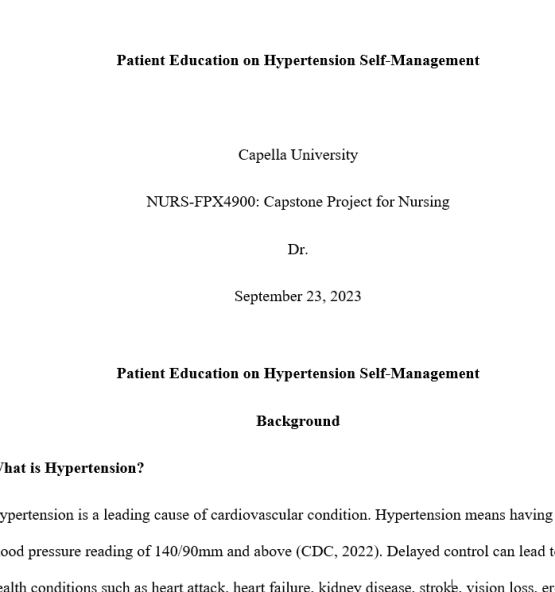
Patient Education on Hypertension Self-Management
Capella University
NURS-FPX4900: Capstone Project for Nursing
Dr.
September 23, 2023
Availability:In Stock
Background
What is Hypertension?
Hypertension is a leading cause of cardiovascular condition. Hypertension means having a high blood pressure reading of 140/90mm and above (CDC, 2022). Delayed control can lead to other health conditions such as heart attack, heart failure, kidney disease, stroke, vision loss, erectile dysfunction, and cognitive decline.
Risk Factors Associated with Hypertension
What are the symptoms of hypertension?
Hypertension self-management creates an opportunity for patients to take charge of their health. The intervention reinforces the need for effective relationships between patients and healthcare professionals, willingness to talk about blood pressure, and discussing treatment plan. The process involves increased awareness about behavior modifications that help control hypertension. Self-management practices include:
A plan for monitoring blood pressure including checking the parameter twice per day. The schedule could include once in the morning and another test in the evening. Home blood pressure monitoring or seeking services from the local health care facility ensure that you adopt consistent blood pressure goals (Li et al., 2020).
Successful hypertension self-management requires patients to coordinate with qualified healthcare professionals such as CHWs, nurses, physicians, and social workers. For this reason, communication and collaboration entails:
Reviews
There are no reviews yet.